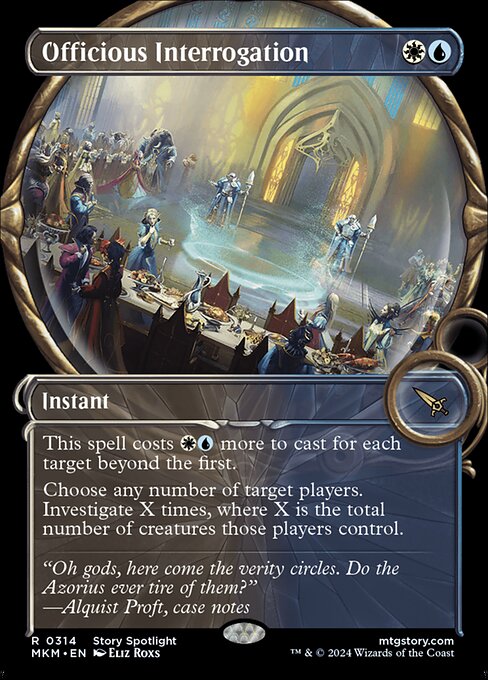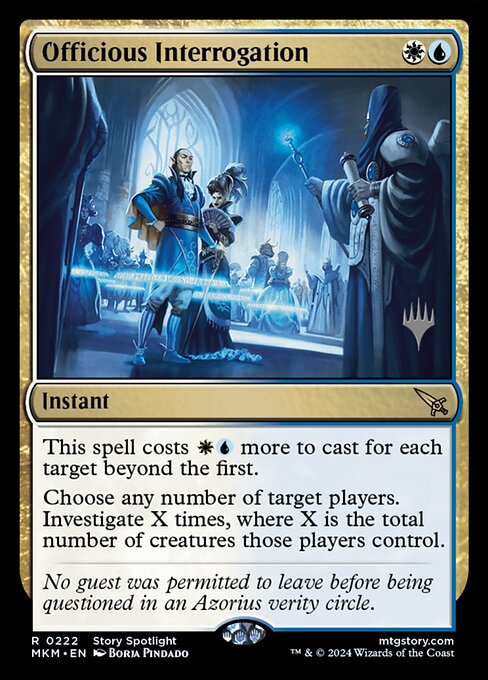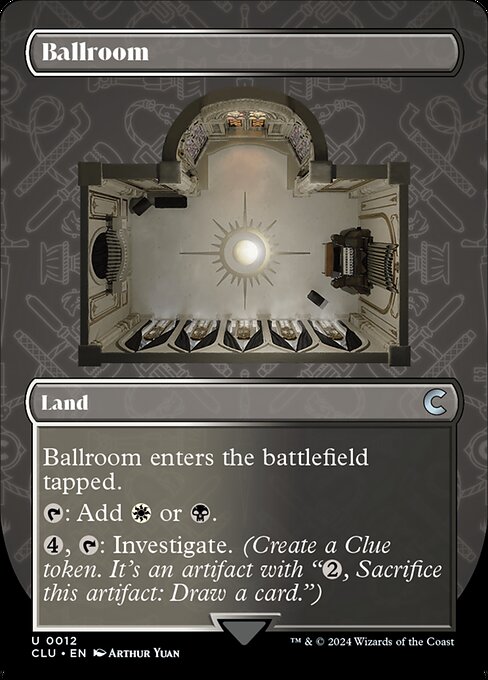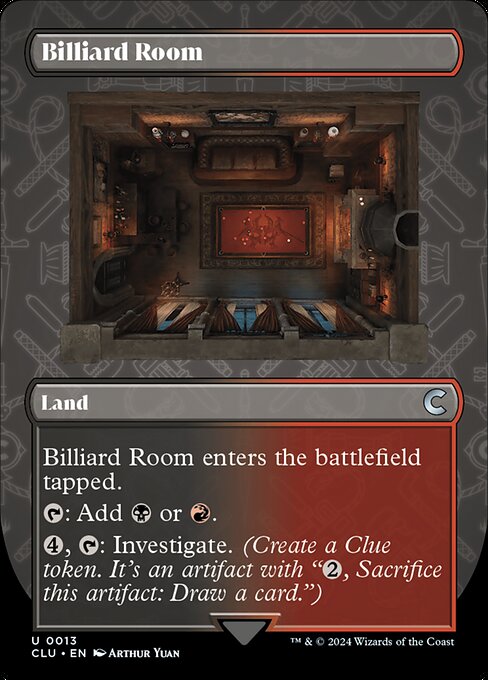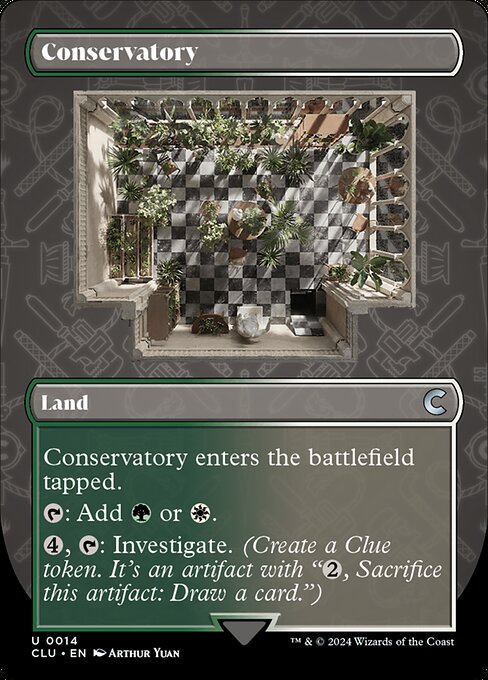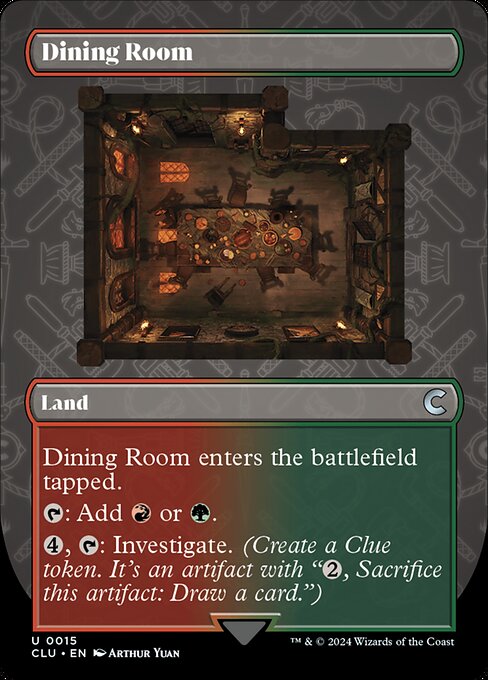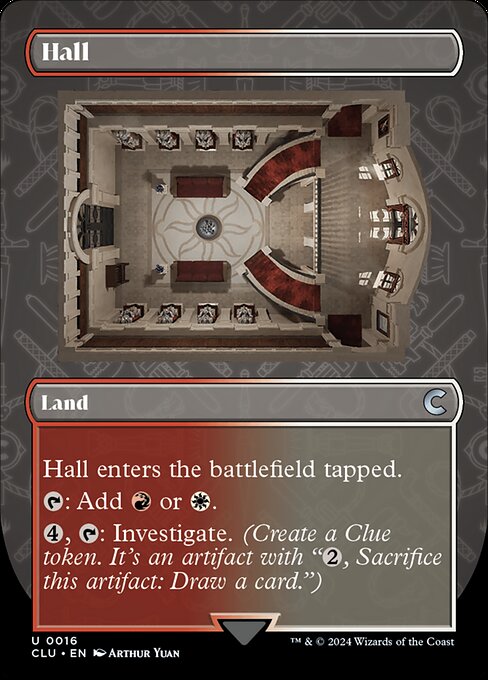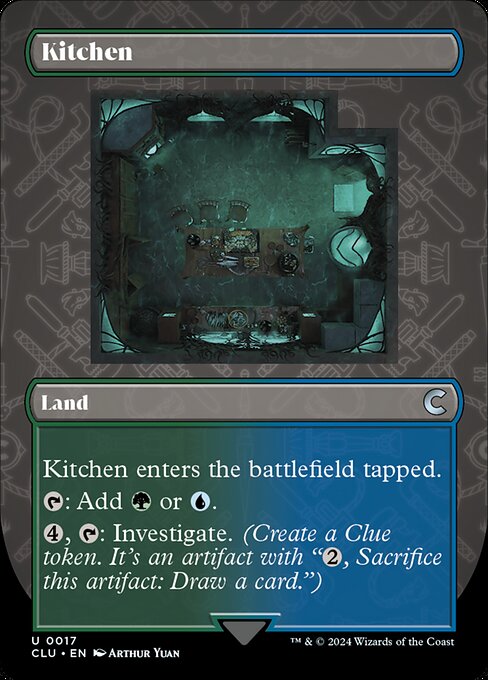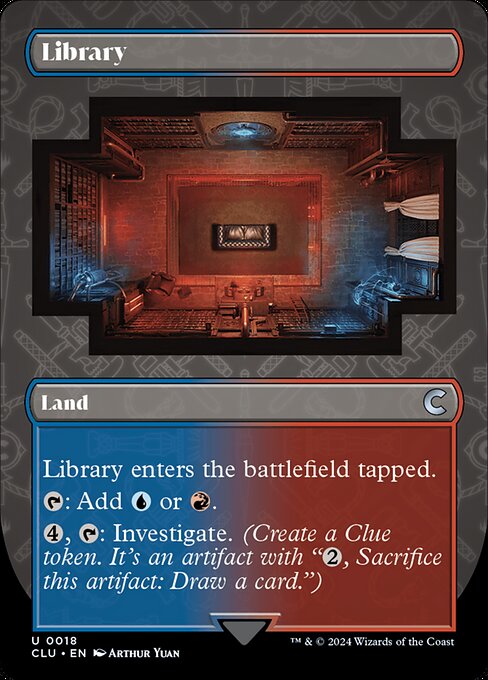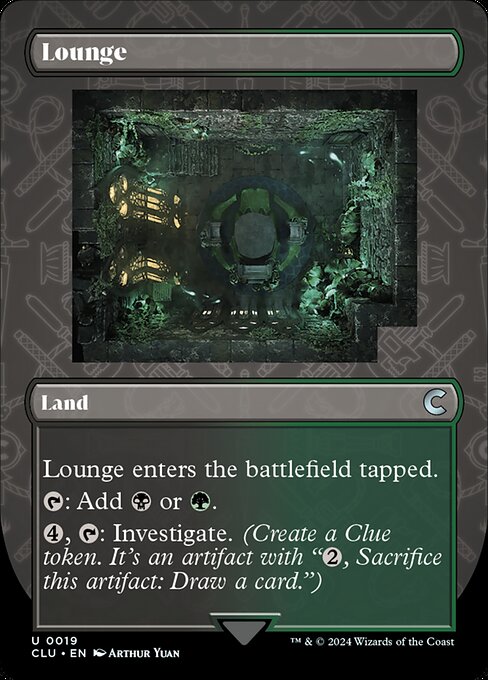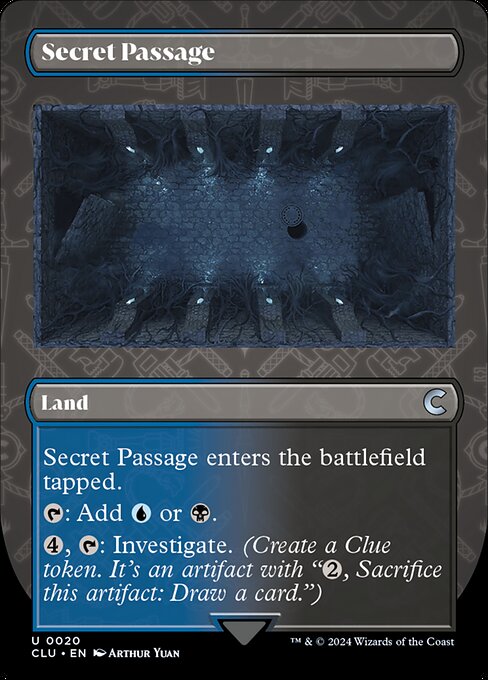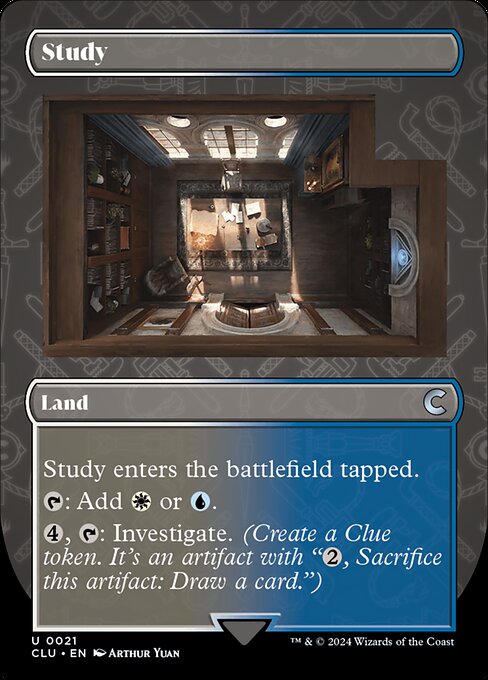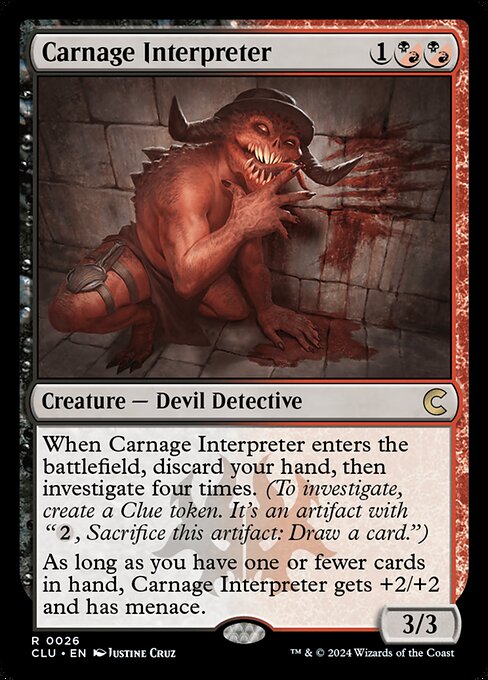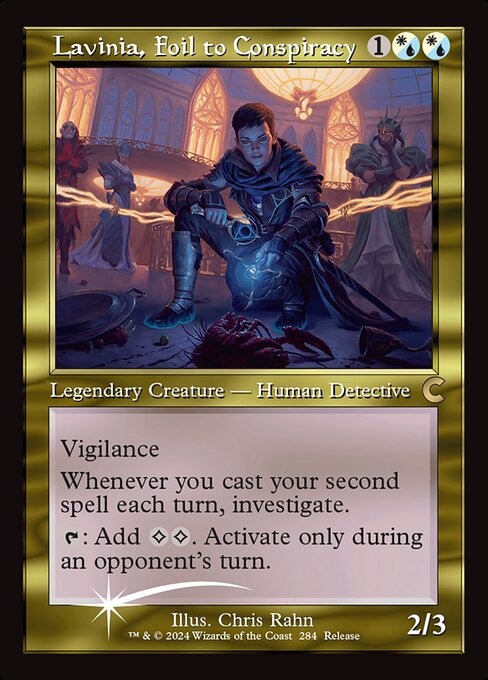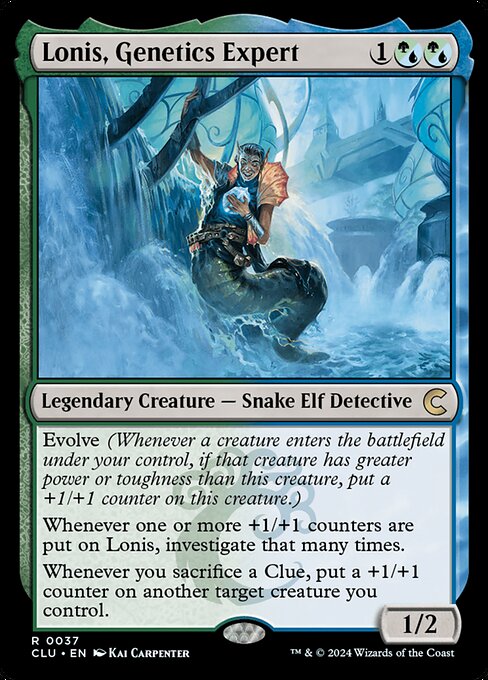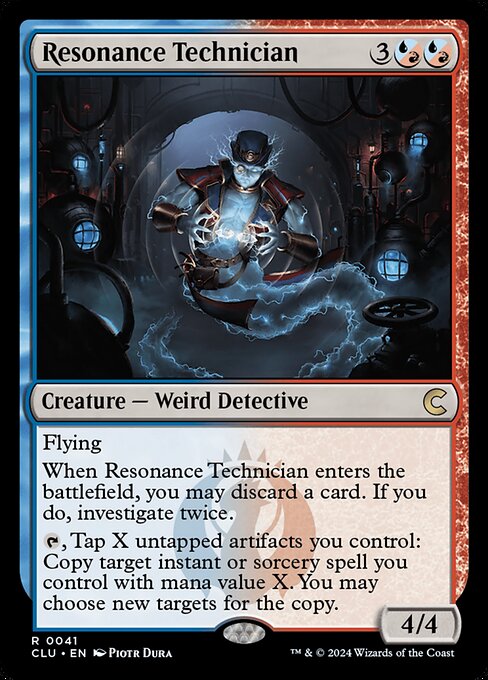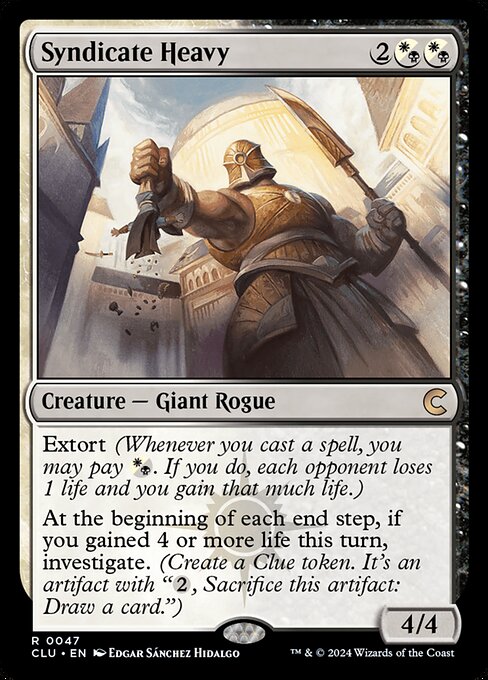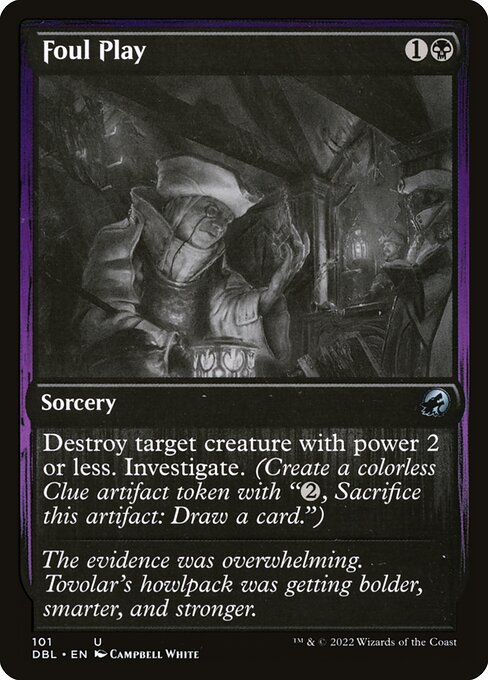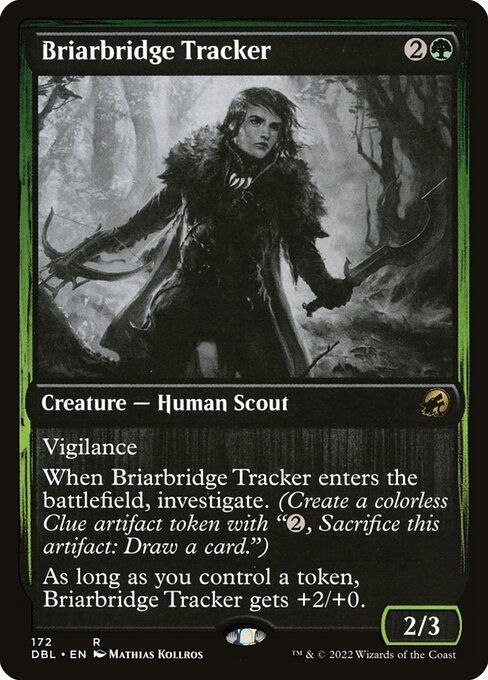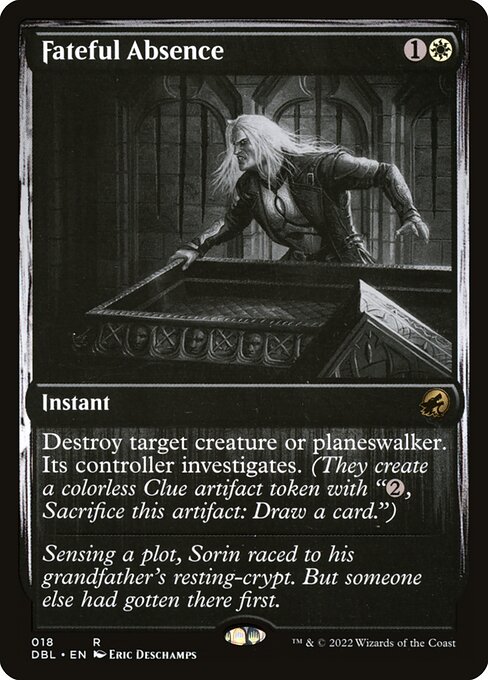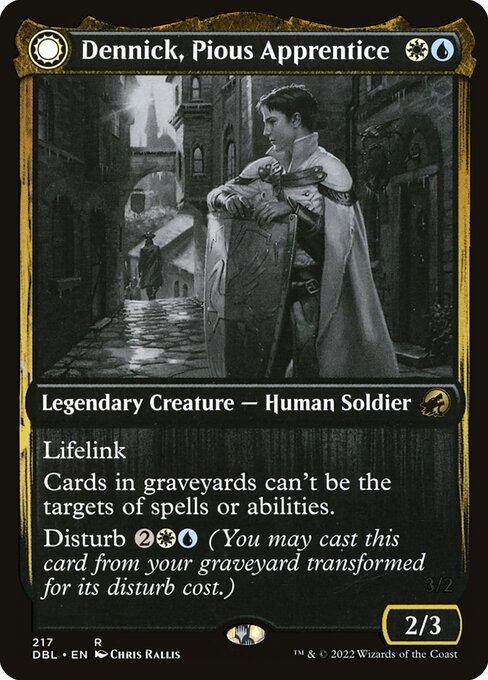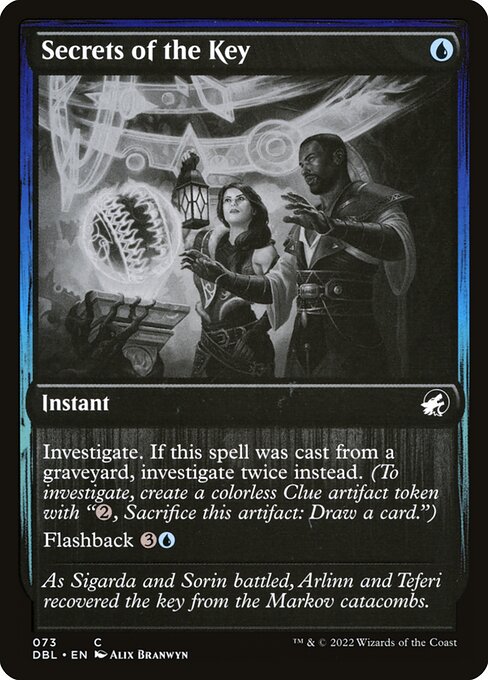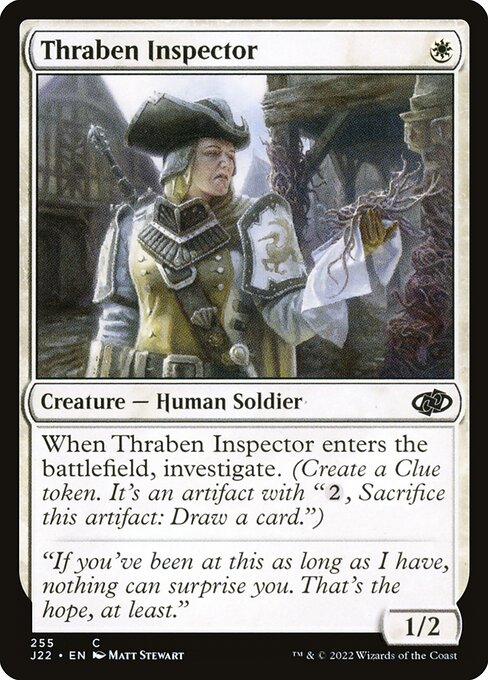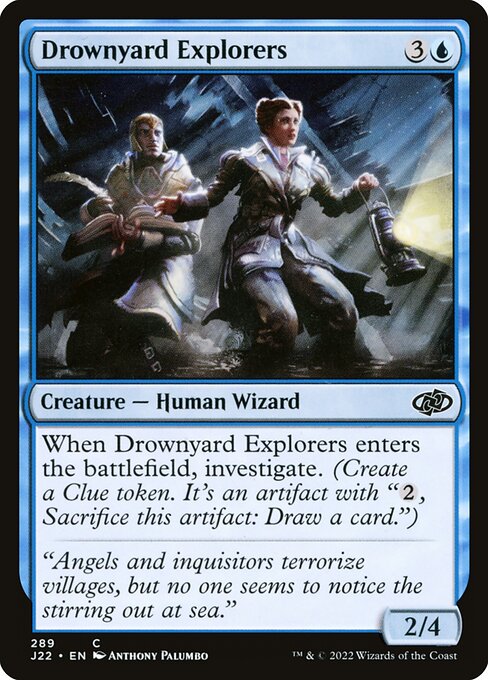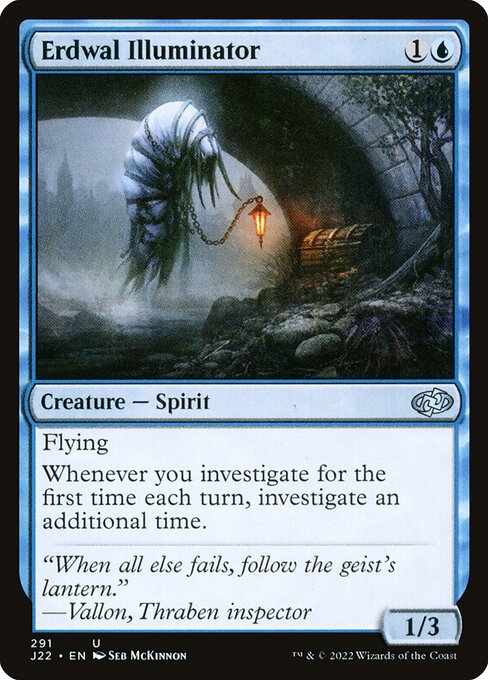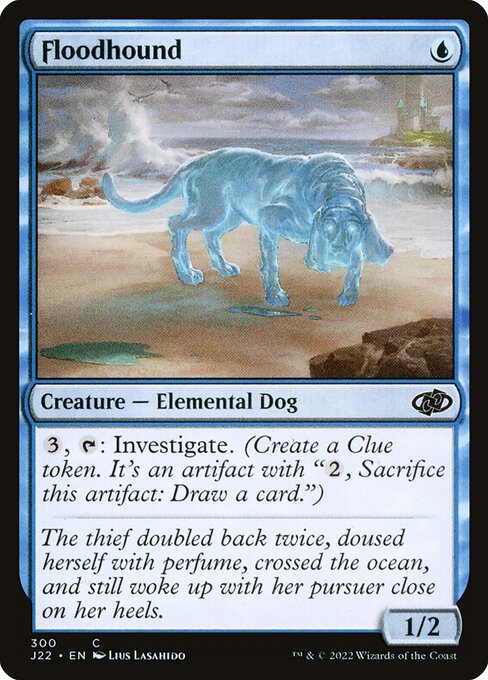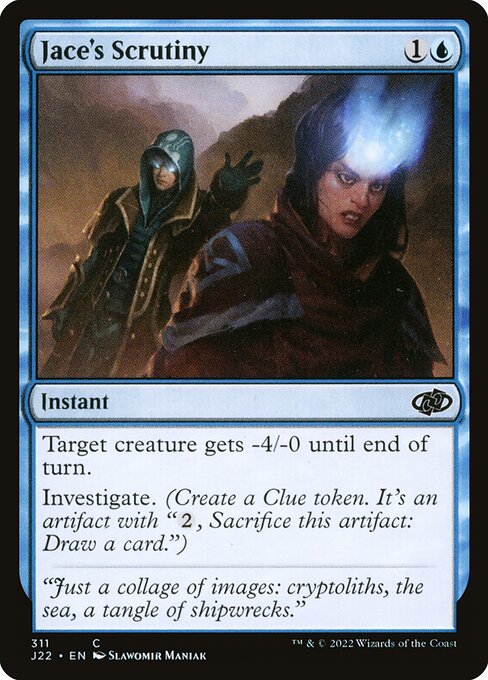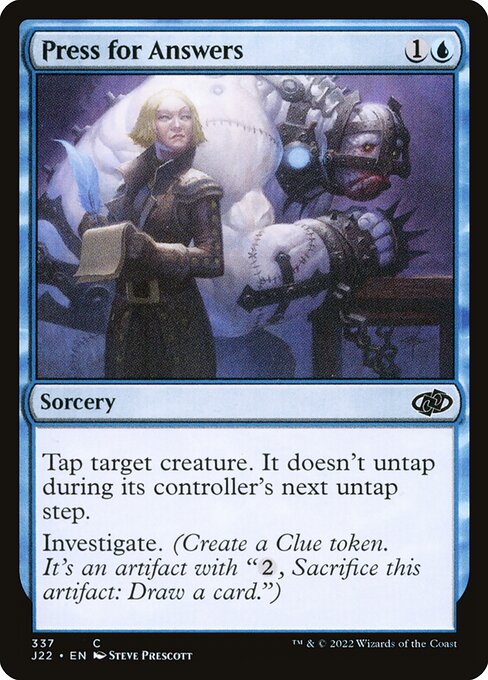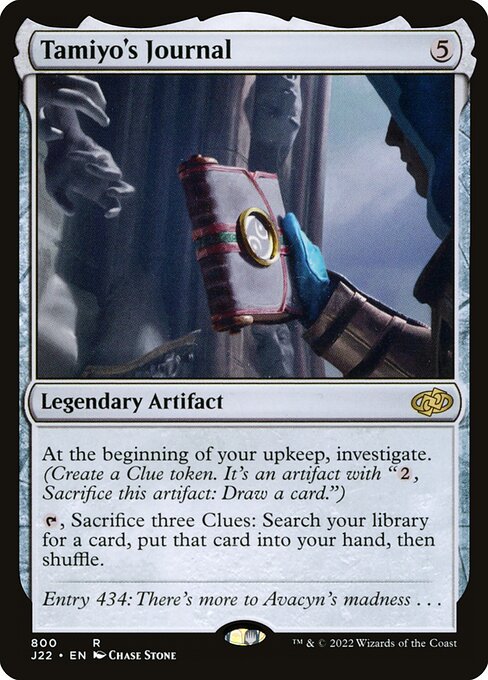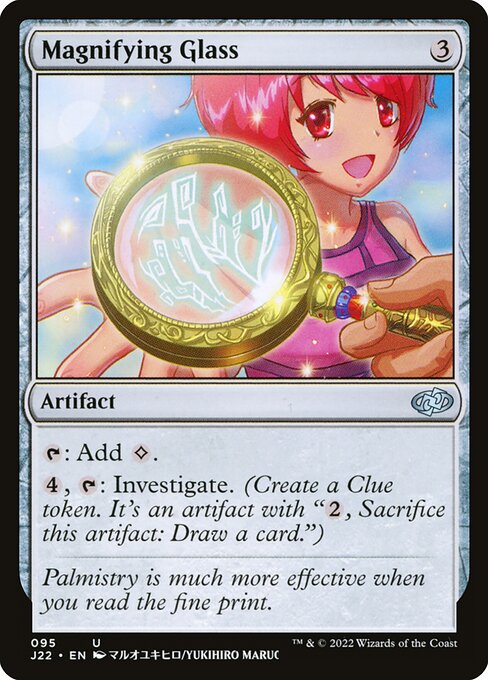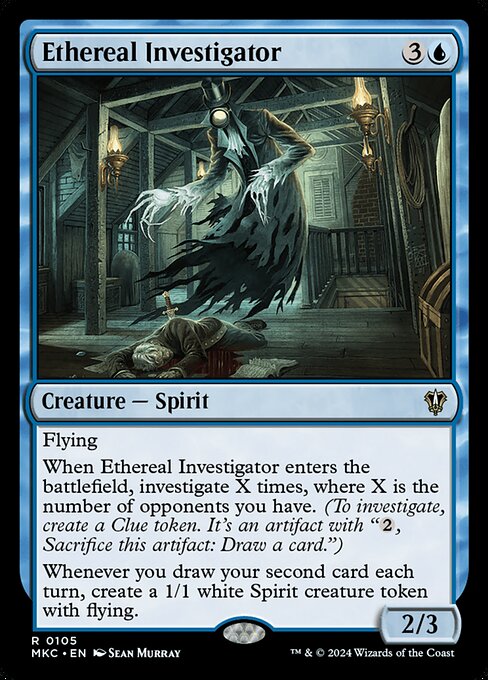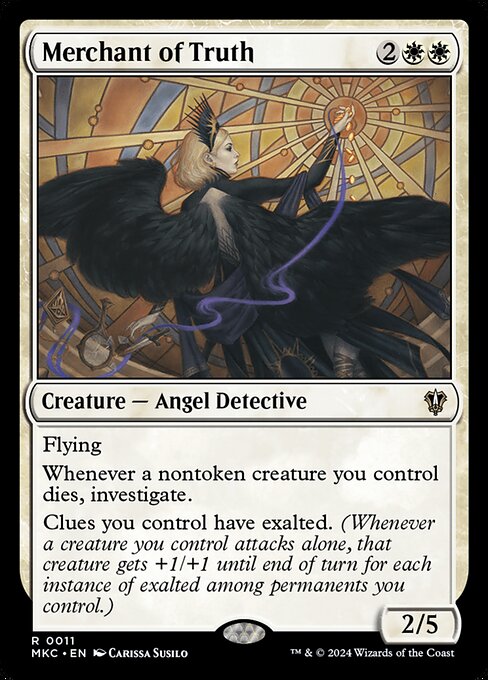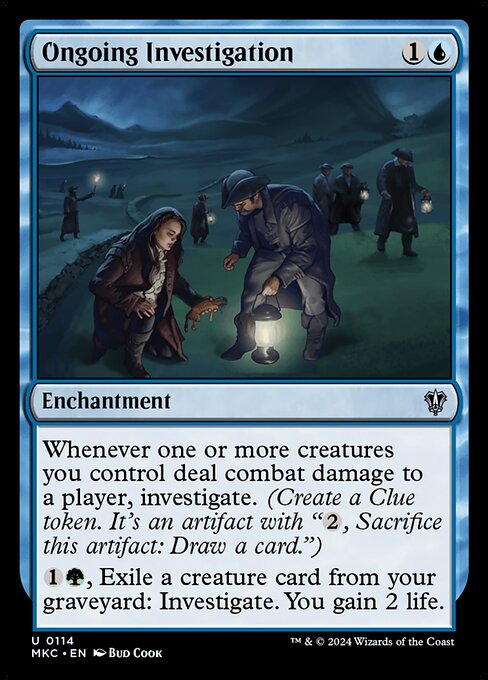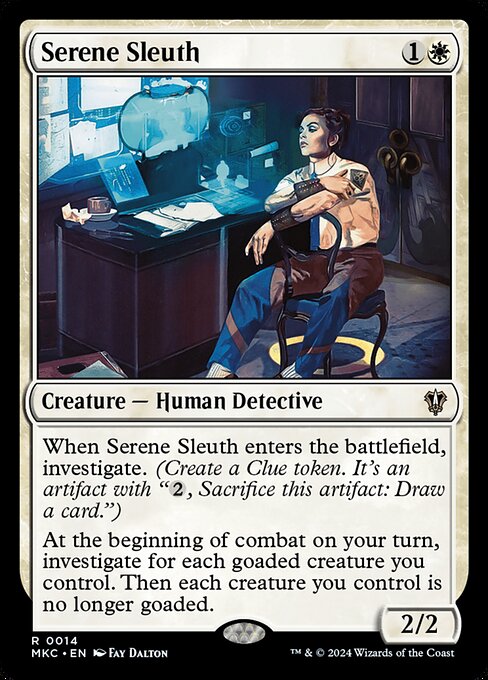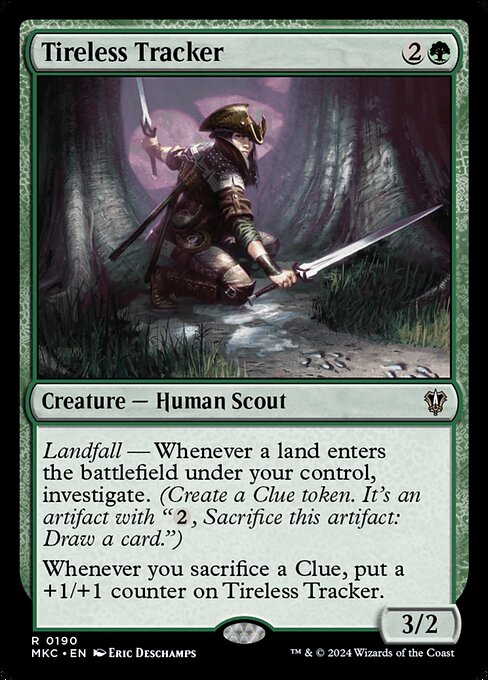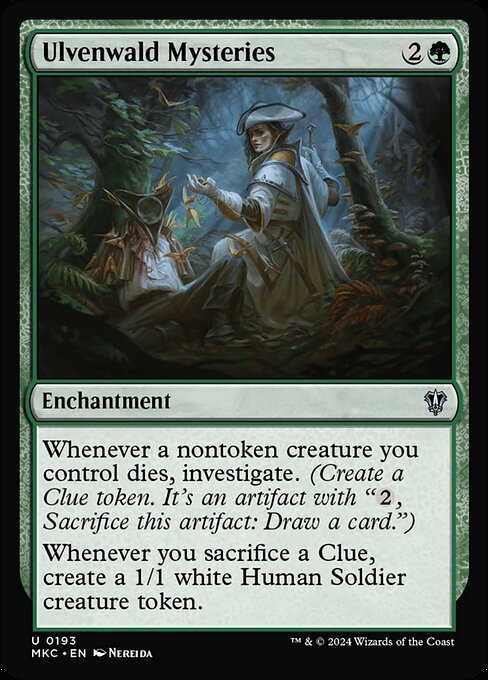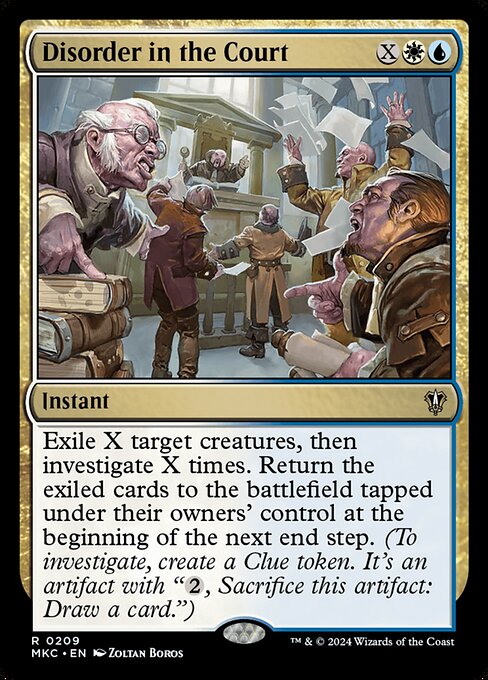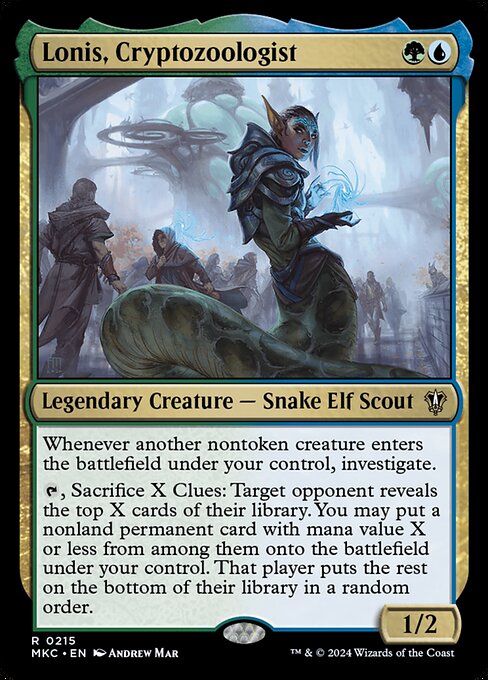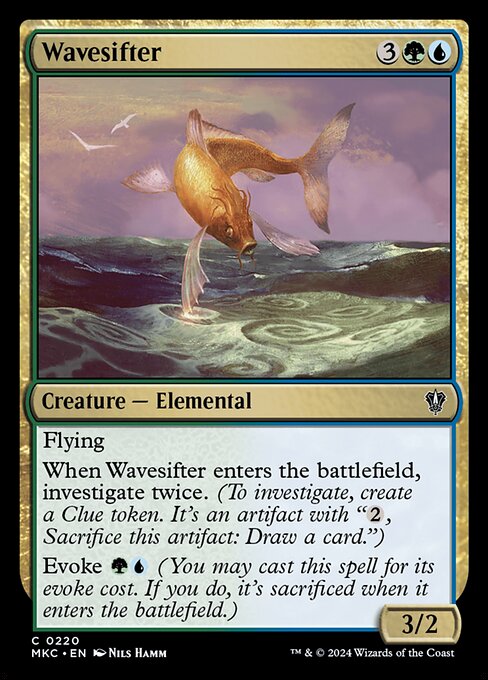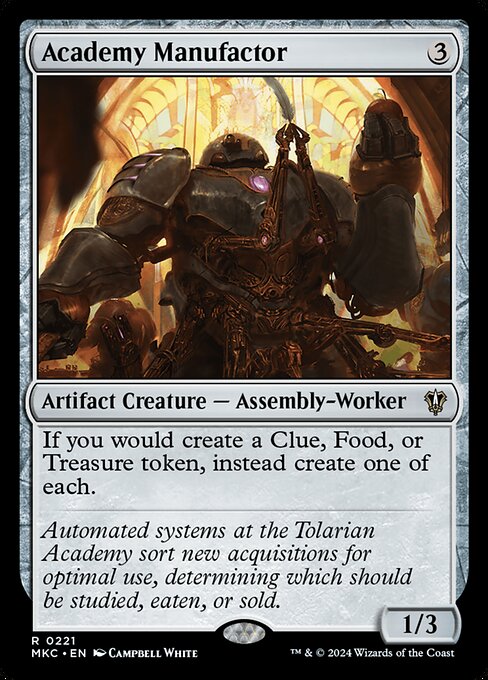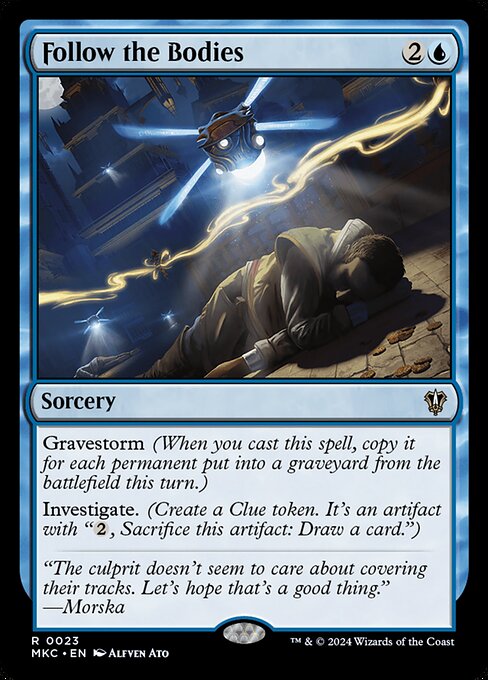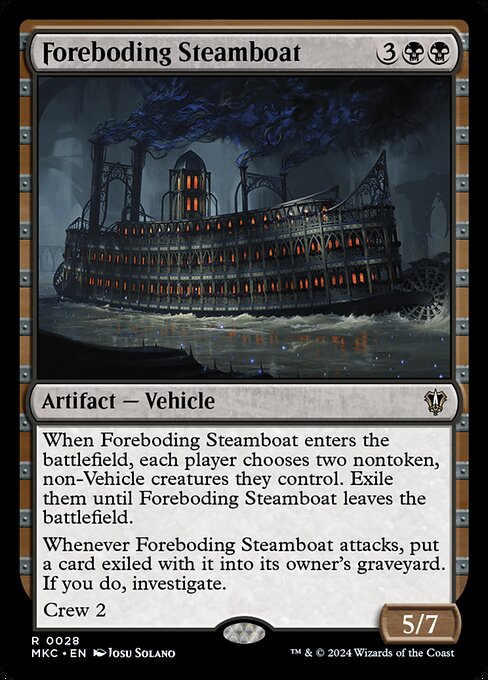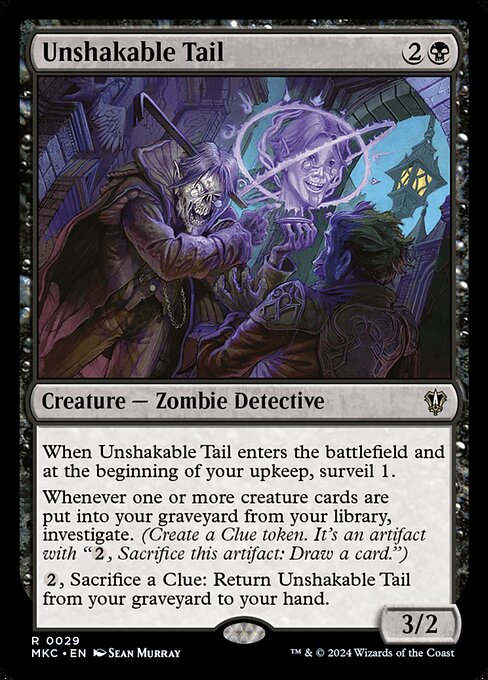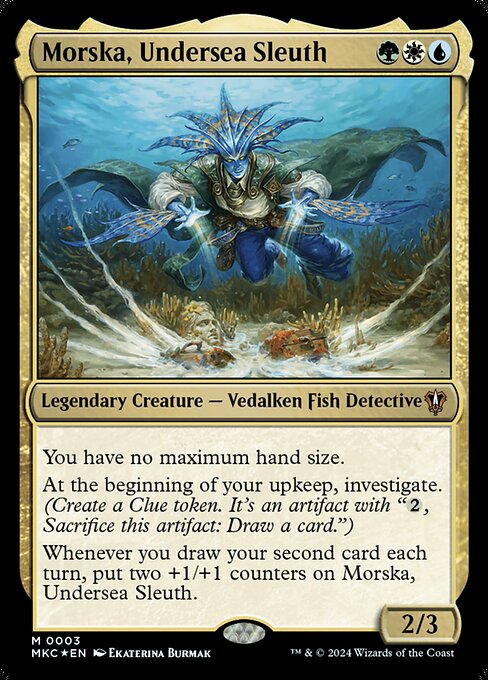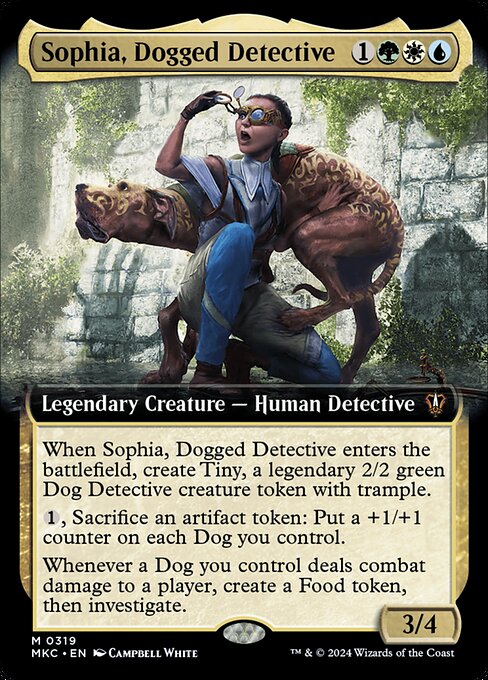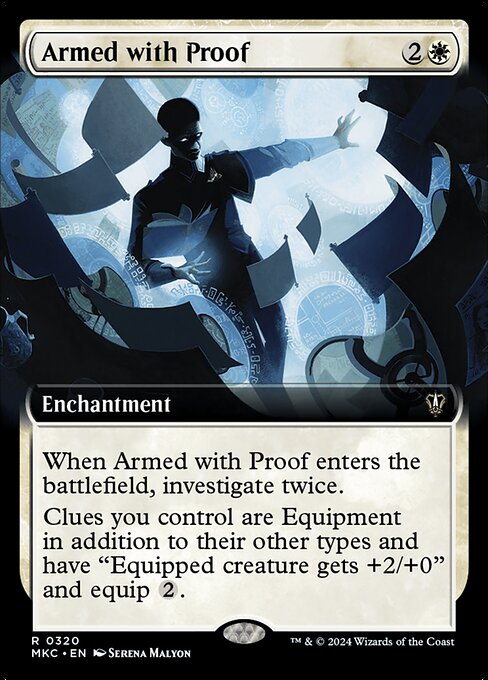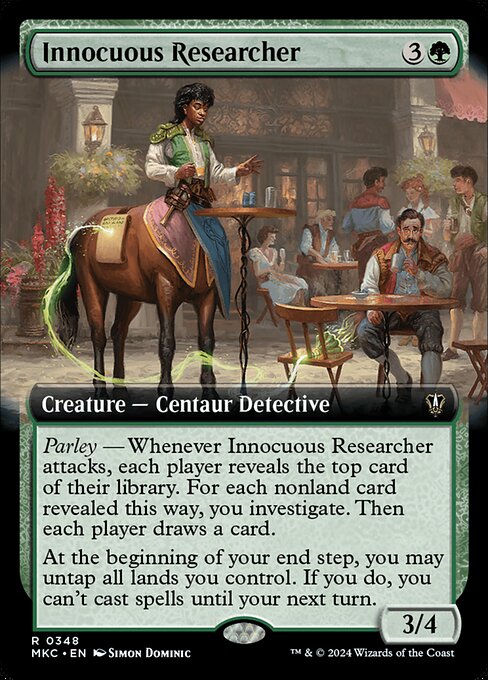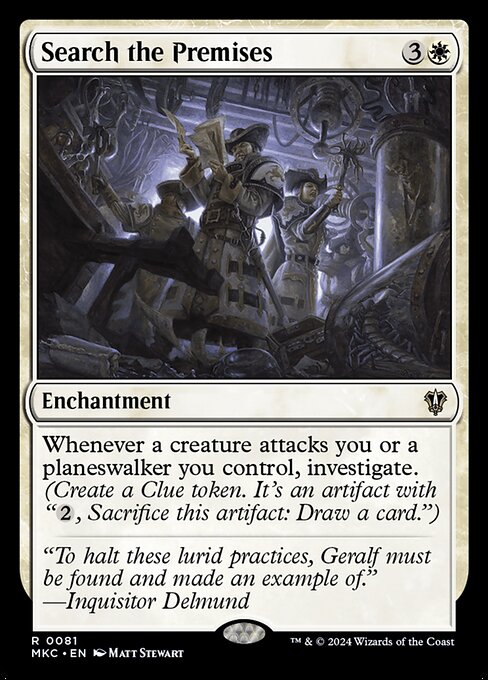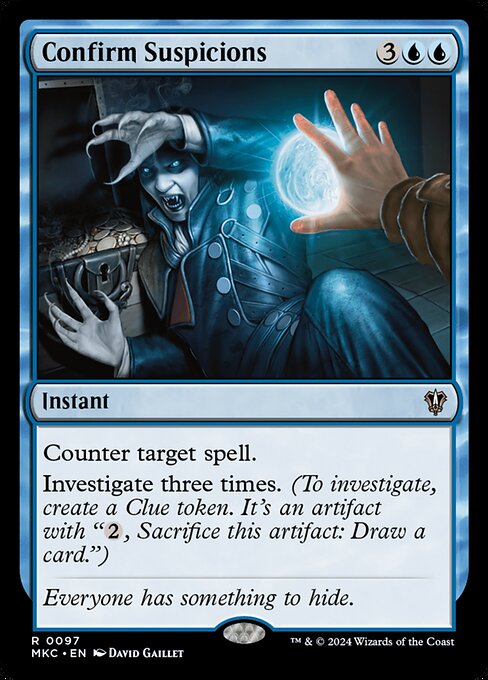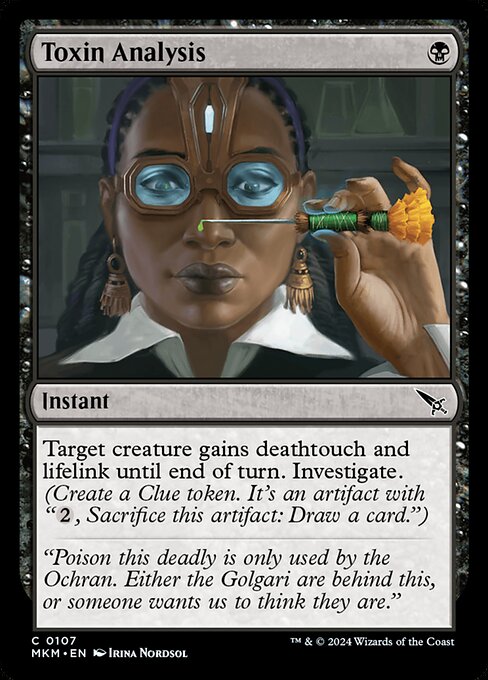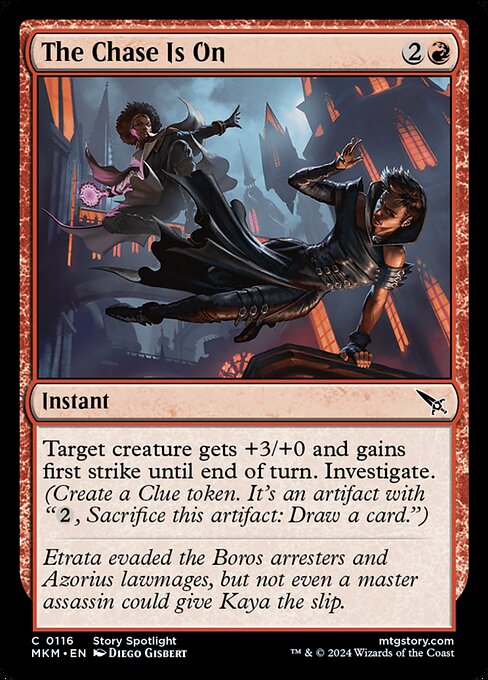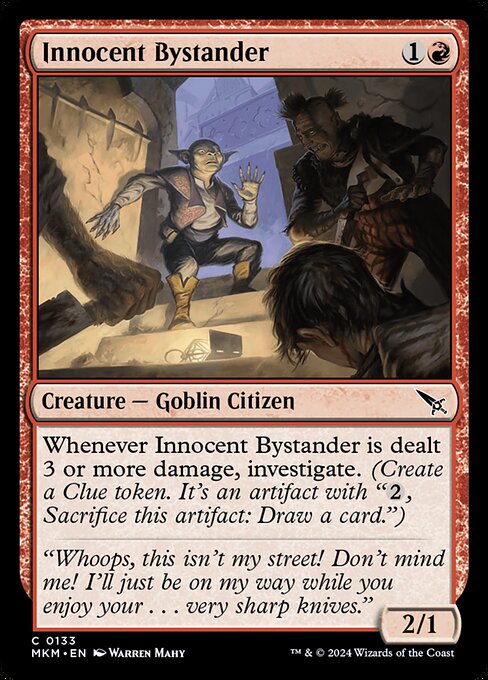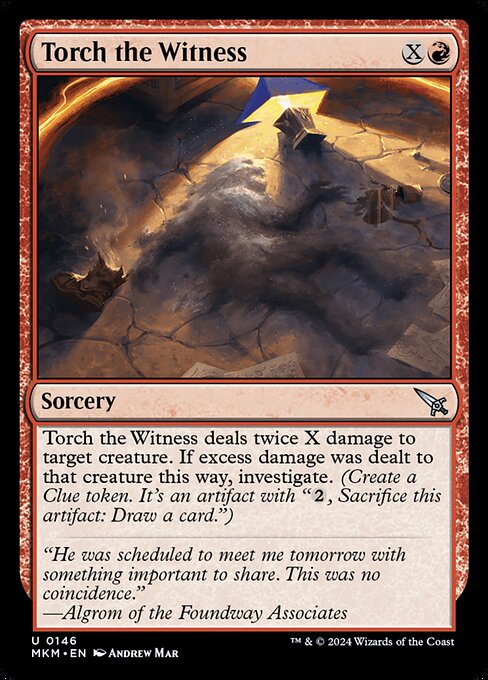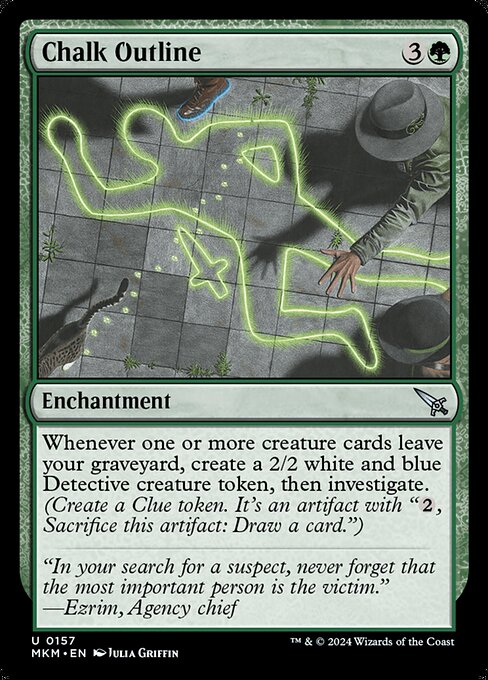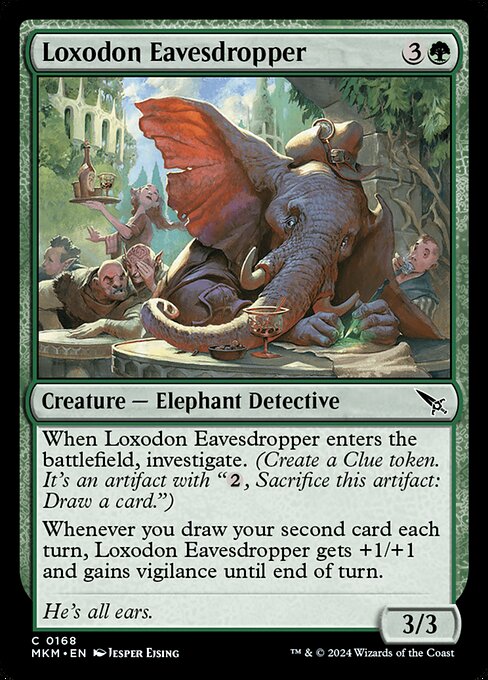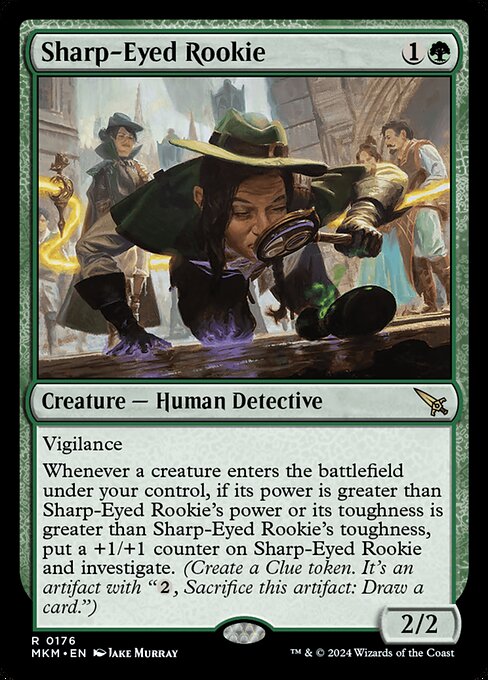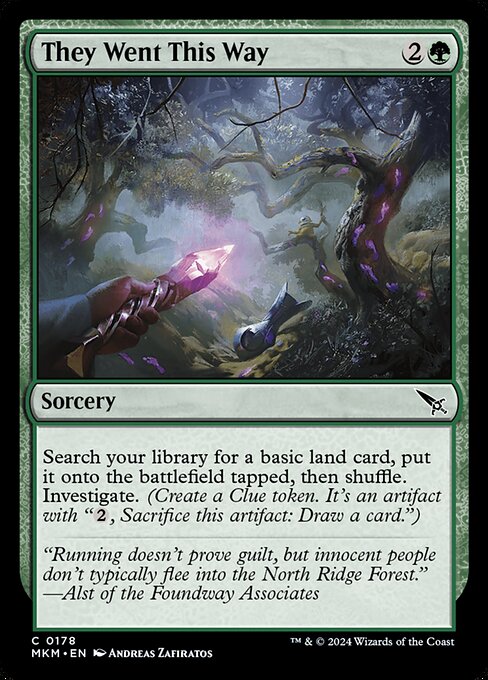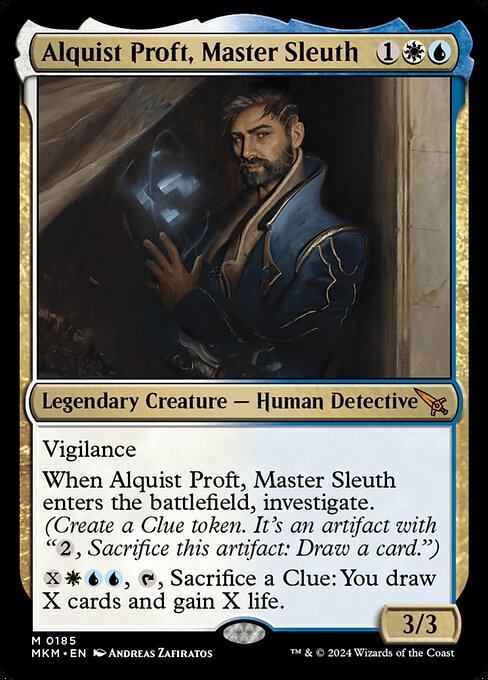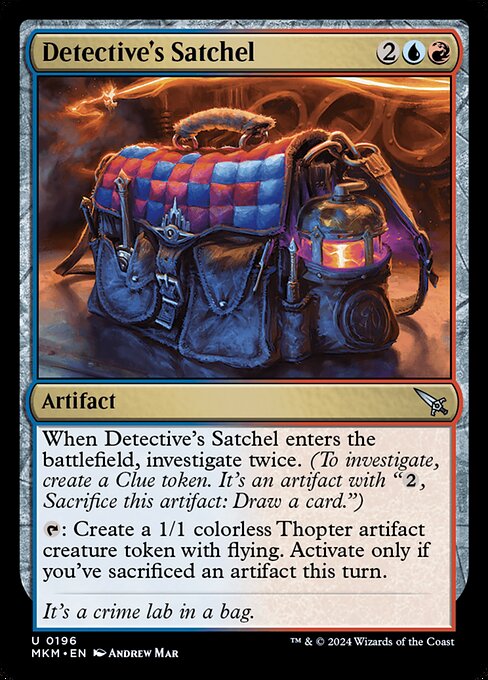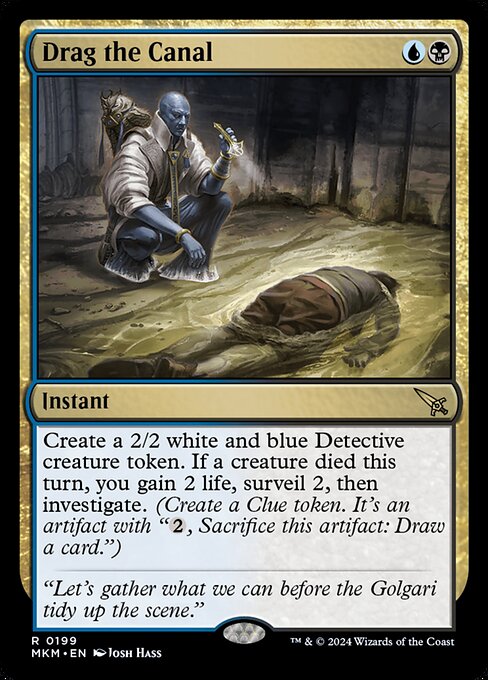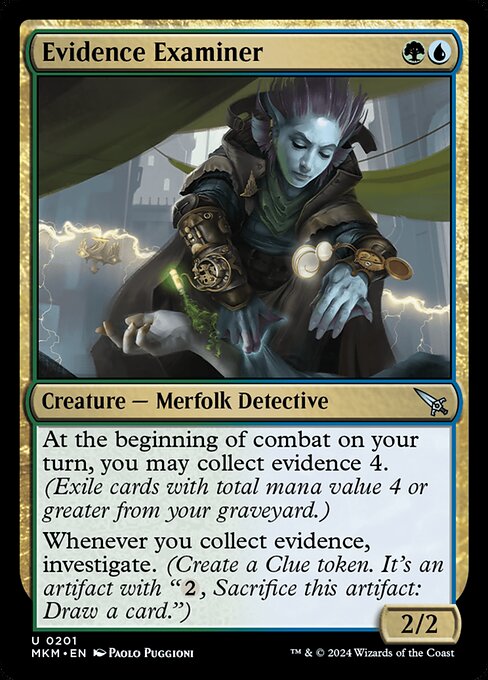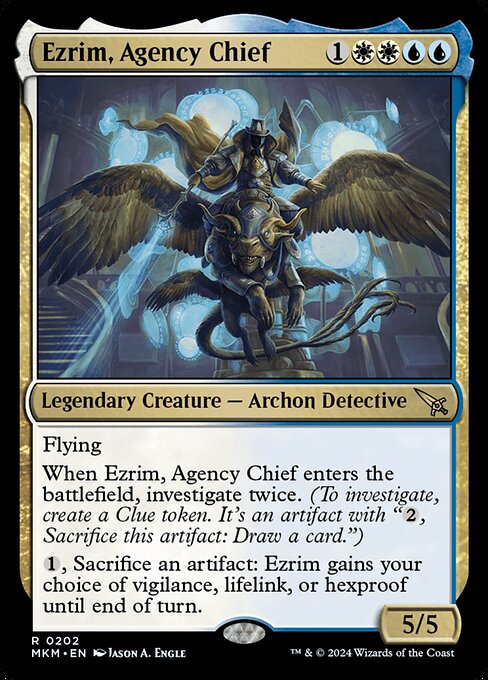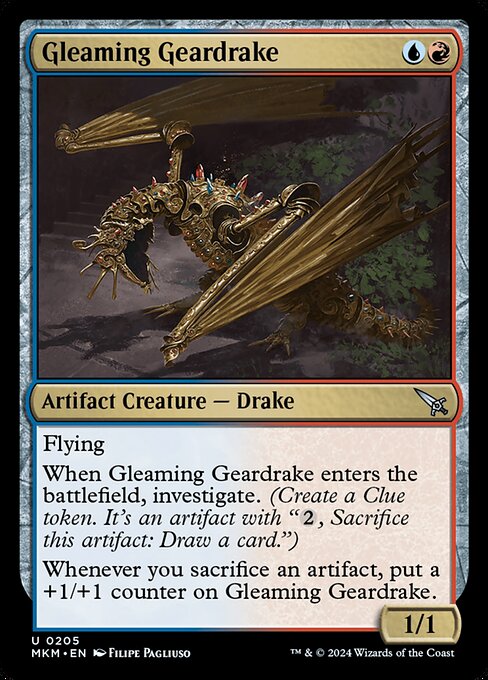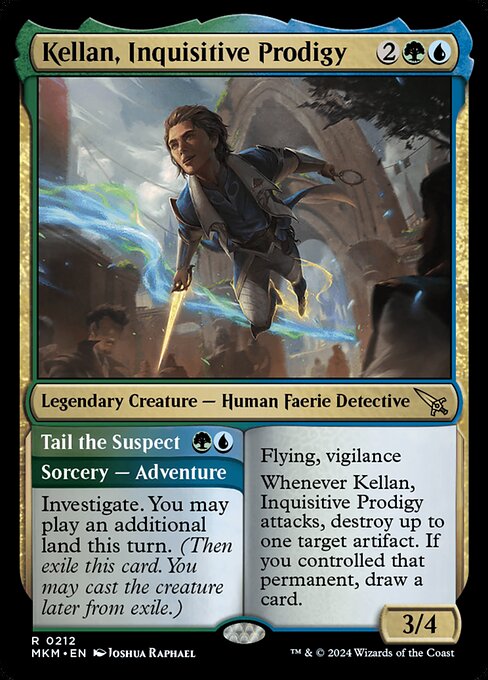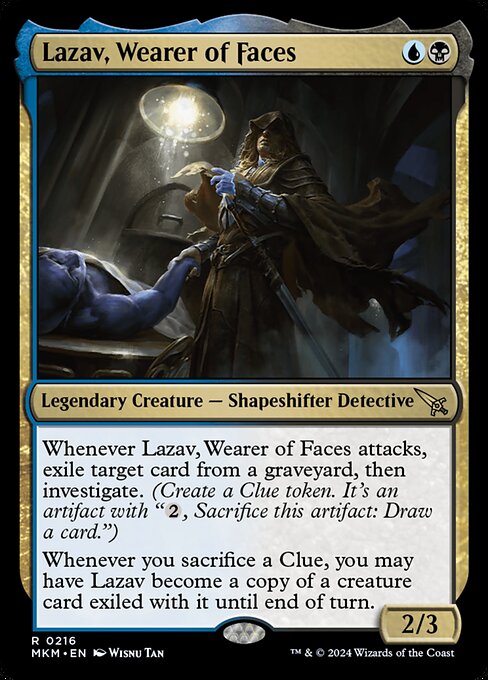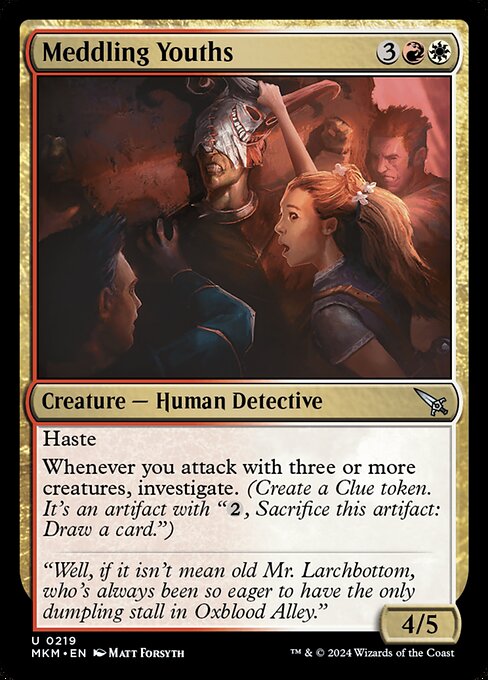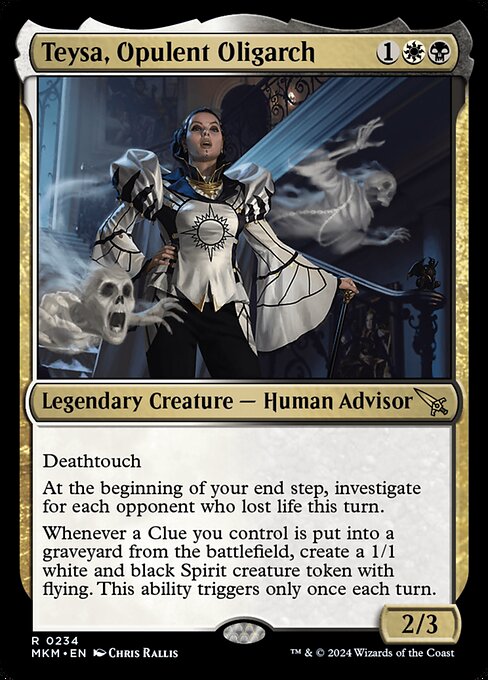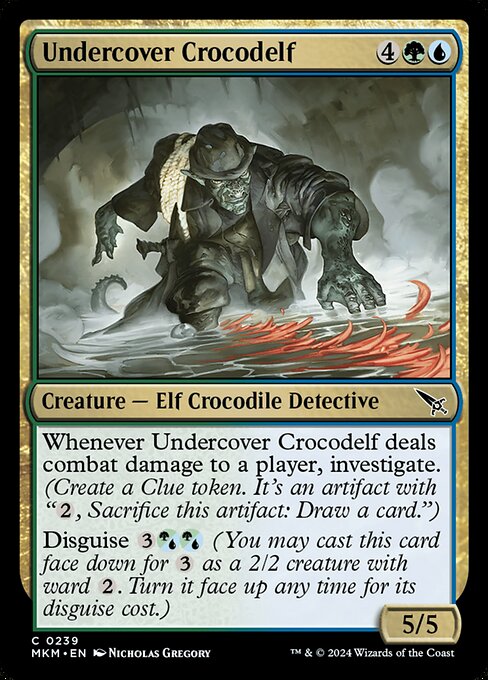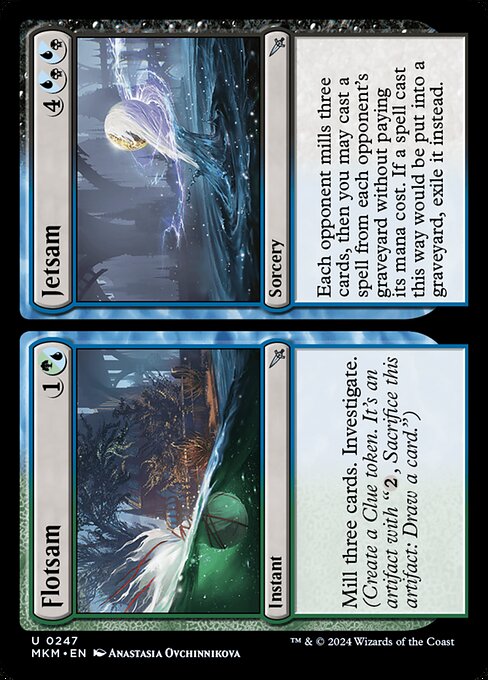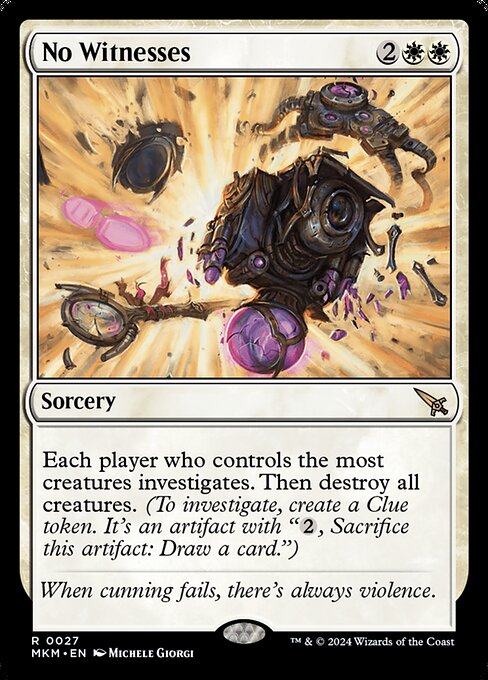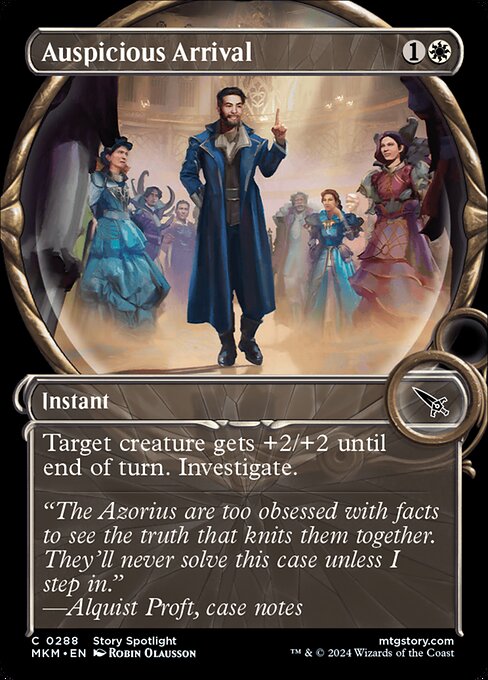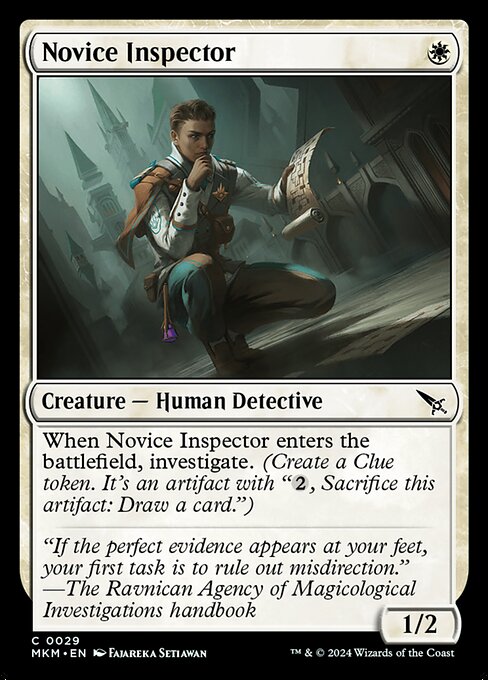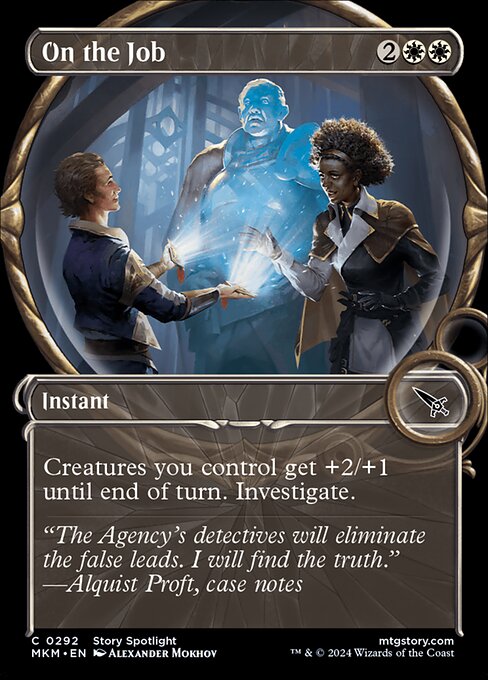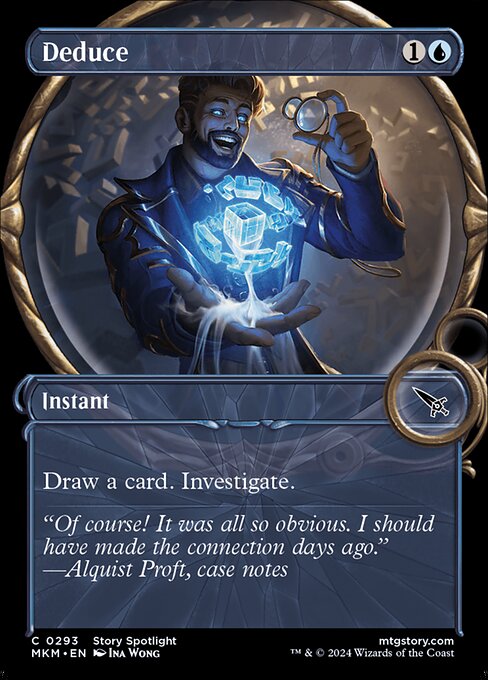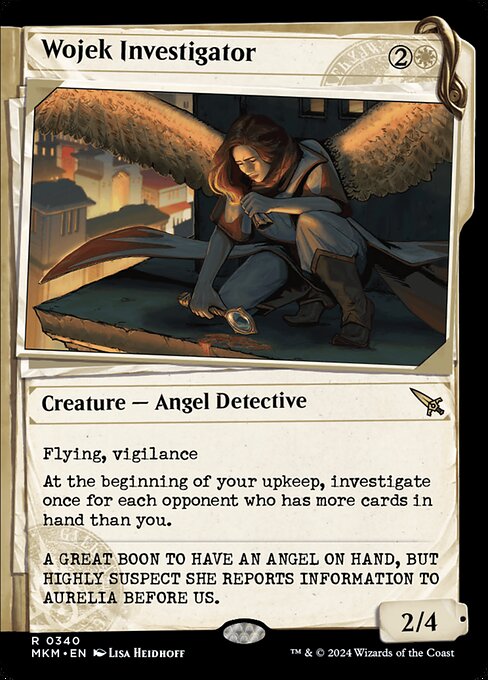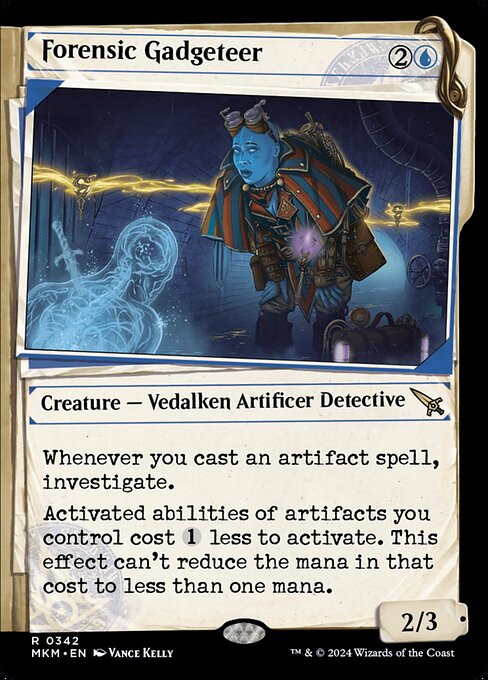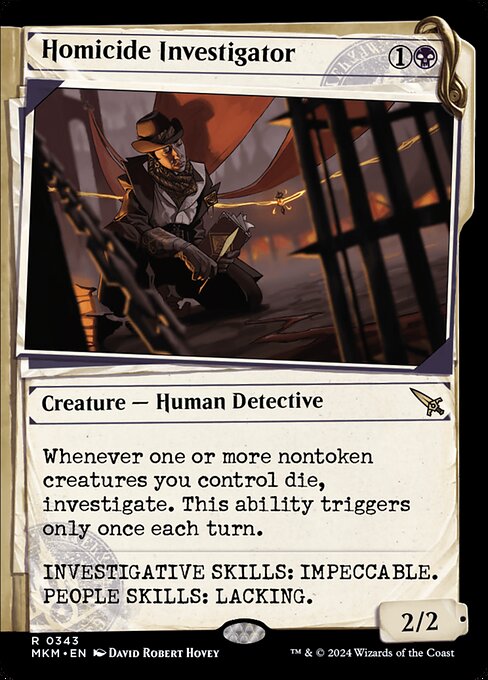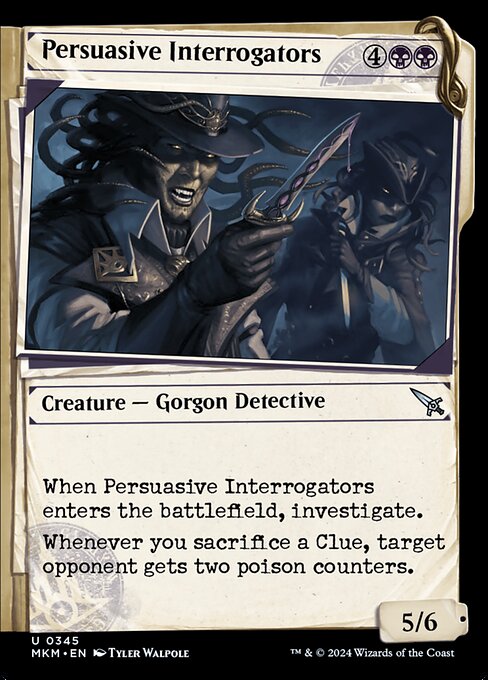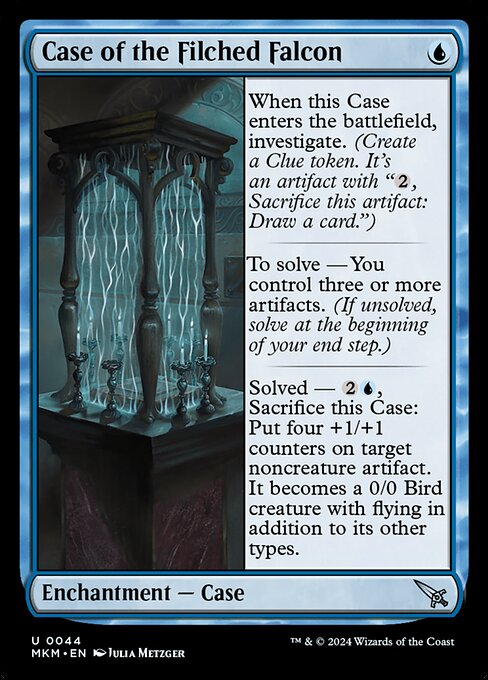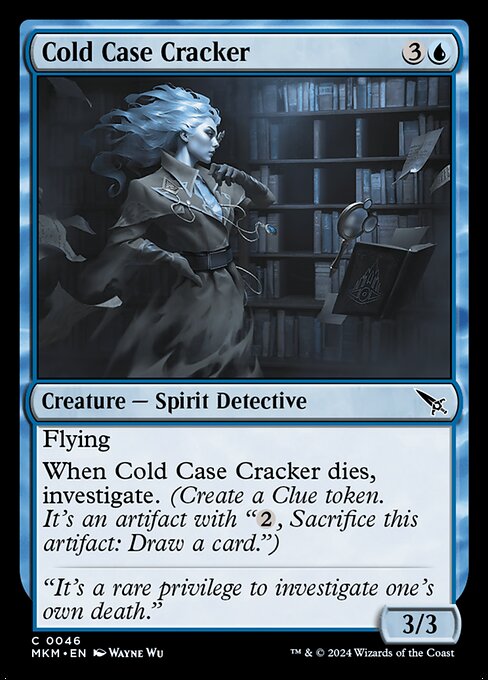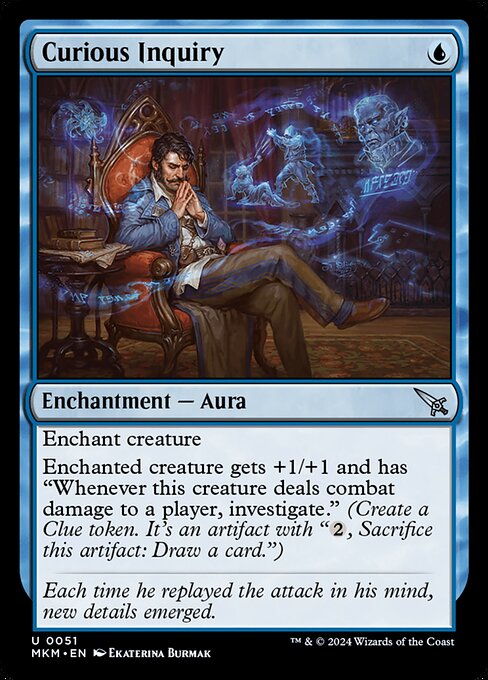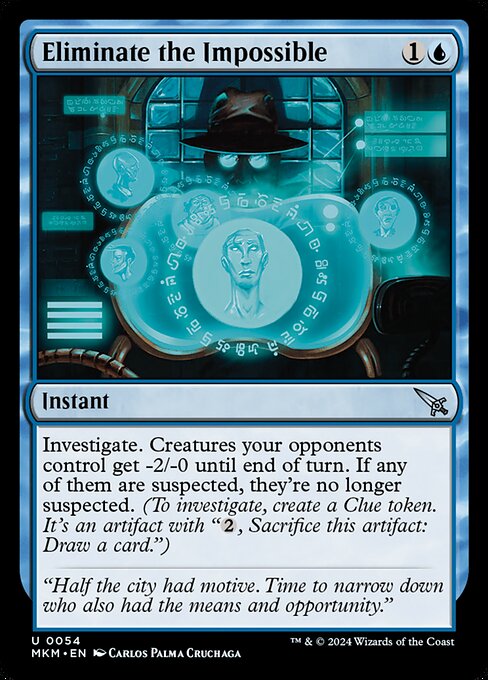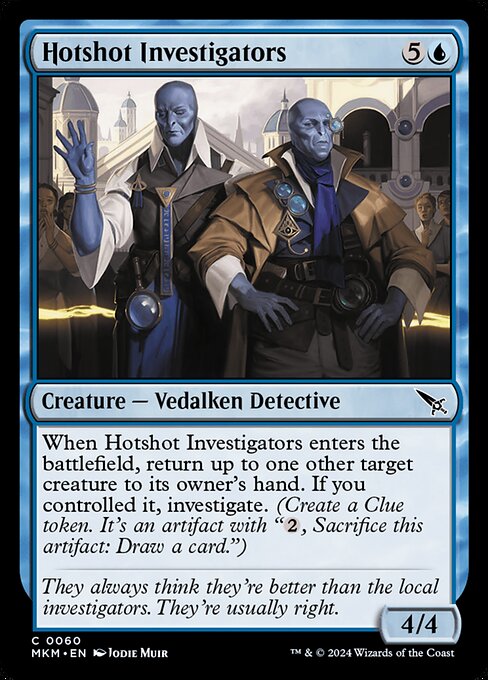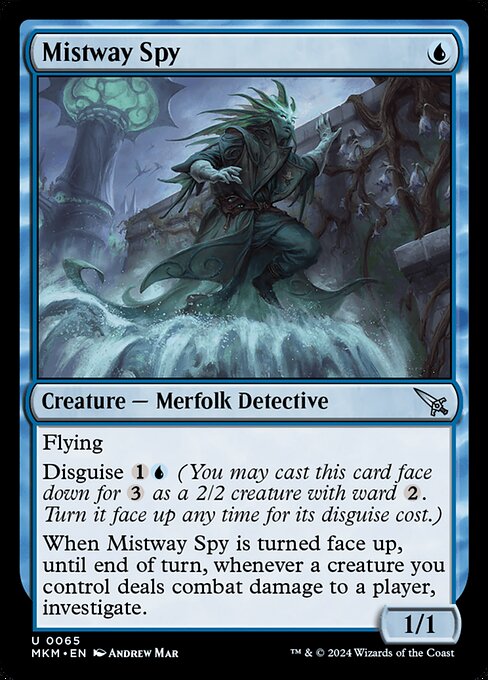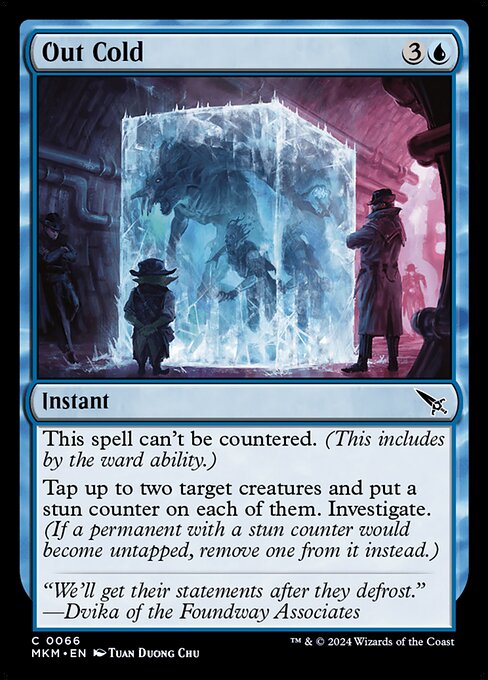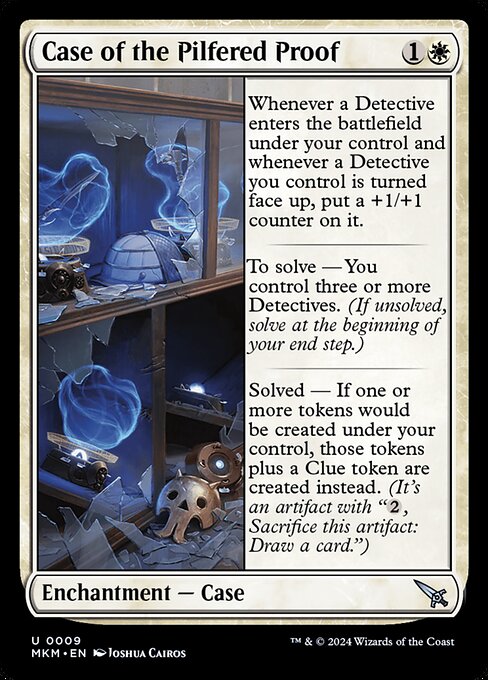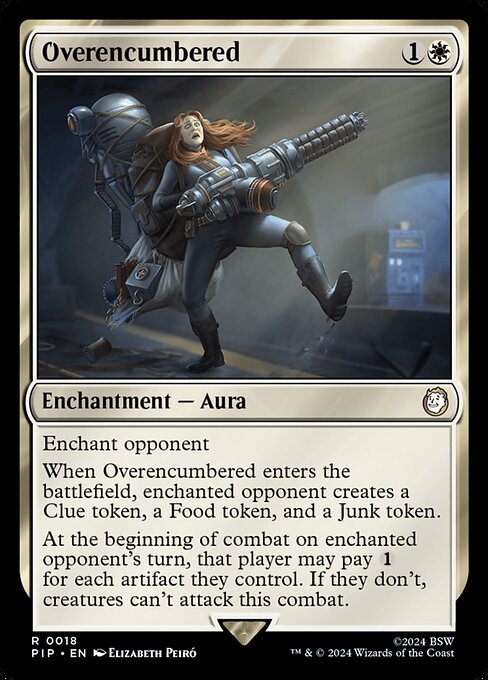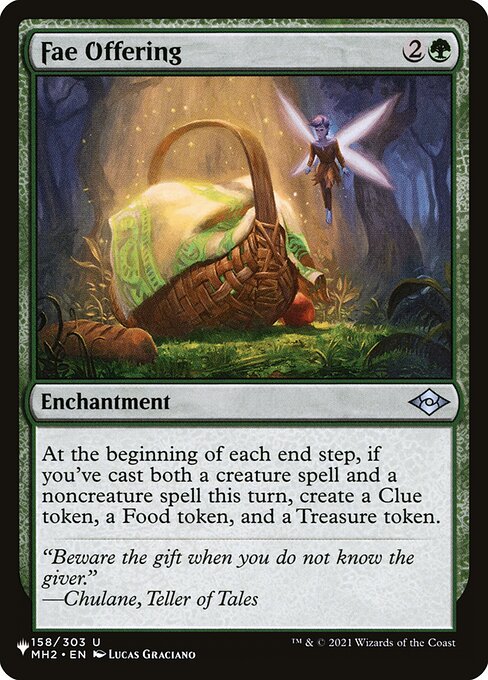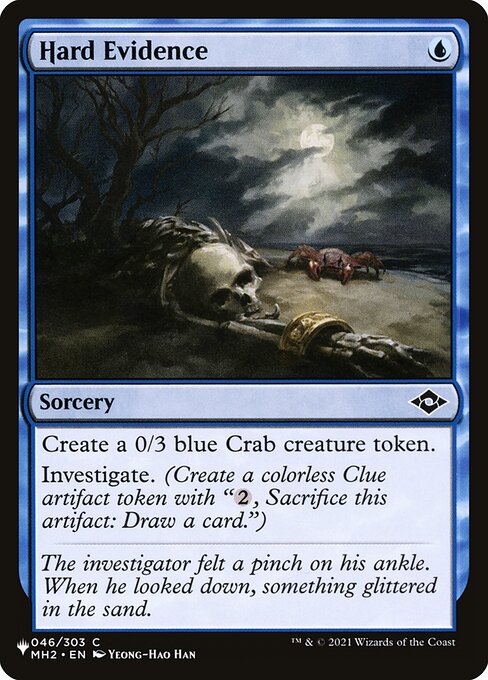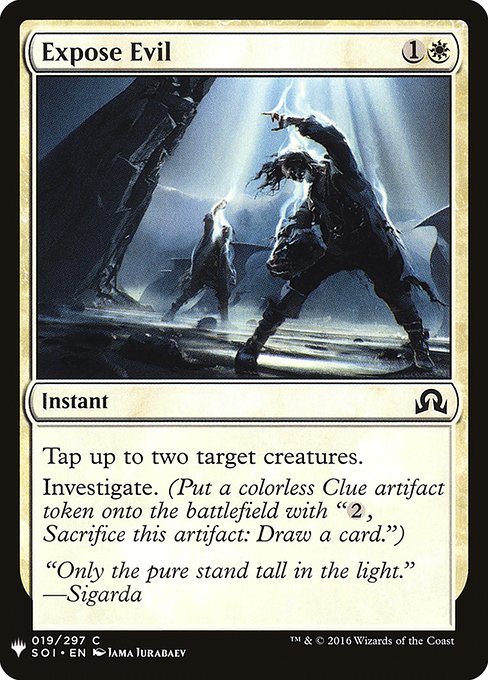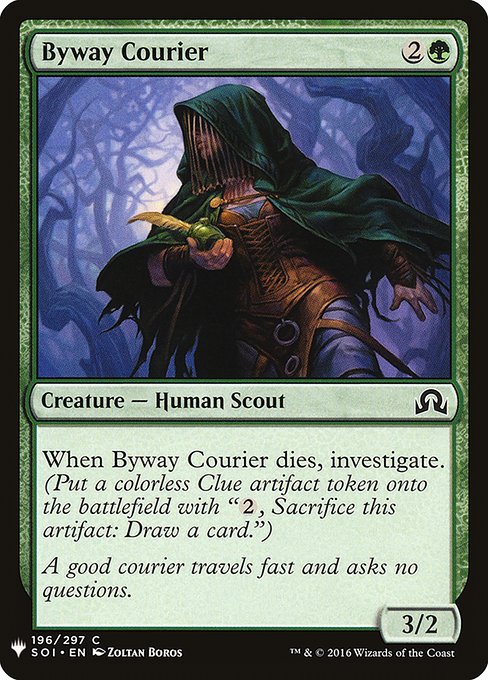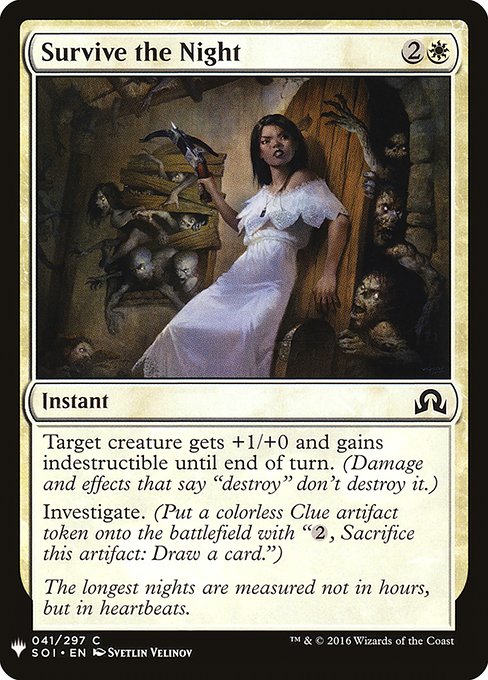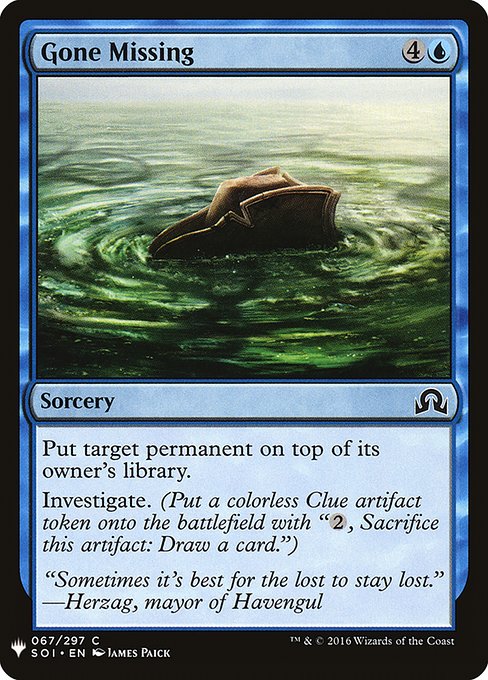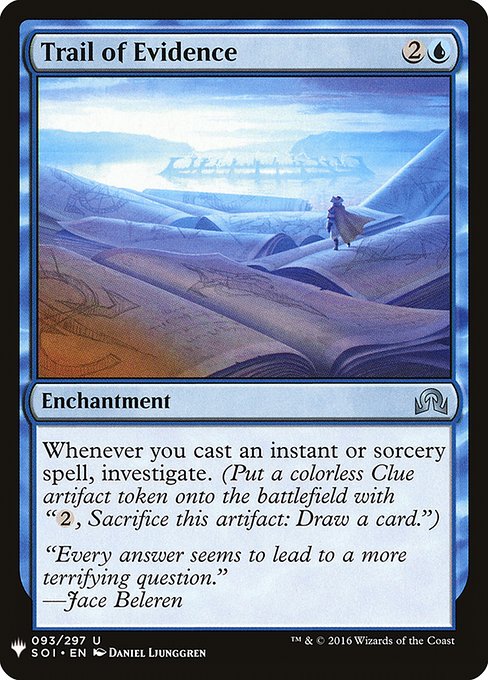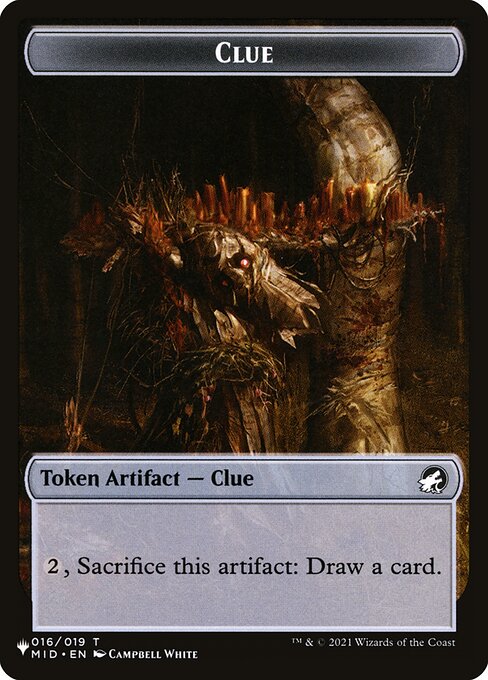standard
future
historic
gladiator
pioneer
explorer
modern
legacy
pauper
vintage
penny
commander
brawl
alchemy
paupercommander
duel
oldschool
premodern
Rulings
You choose how many targets Officious Interrogation has and what those targets are as you cast it. You can’t choose the same target more than once. It’s legal to cast Officious Interrogation with no targets, although this particular option should be placed under some serious scrutiny.
If a spell or ability allows you to cast Officious Interrogation without paying its mana cost, you must still pay the additional cost for any targets beyond the first.
Clue is an artifact type. Even though it appears on some cards with other permanent types, it’s never a creature type, a land type, or anything but an artifact type.
You can’t sacrifice a Clue to pay multiple costs. For example, you can’t sacrifice a Clue token to activate its own ability and also to activate Alquist Proft, Master Sleuth’s ability.
If an effect refers to a Clue, it means any Clue artifact, not just a Clue artifact token. For example, you can sacrifice Wrench to pay for Alquist Proft, Master Sleuth’s activated ability.
If this spell is copied and the effect that copies the spell allows a player to choose new targets for the copy, the number of targets can’t be changed. The player may change any number of the targets, including all of them or none of them. If, for one of the targets, the player can’t choose a new legal target, then it remains unchanged (even if the current target is illegal).
Any target players that are no longer legal targets by the time Officious Interrogation resolves won’t have their creatures counted when determining how many tokens you create.
Some abilities trigger “whenever you sacrifice a Clue”. Those abilities trigger whenever you sacrifice a Clue for any reason, not just to activate a Clue’s activated ability.
Officious Interrogation’s mana value doesn’t change no matter how many targets it has.
Some spells and abilities that investigate may require targets. If each target chosen is an illegal target as that spell or ability tries to resolve, it won’t resolve. You won’t create any Clue tokens.
If a spell or ability allows you to cast Officious Interrogation without paying its mana cost, you must still pay the additional cost for any targets beyond the first.
Clue is an artifact type. Even though it appears on some cards with other permanent types, it’s never a creature type, a land type, or anything but an artifact type.
You can’t sacrifice a Clue to pay multiple costs. For example, you can’t sacrifice a Clue token to activate its own ability and also to activate Alquist Proft, Master Sleuth’s ability.
If an effect refers to a Clue, it means any Clue artifact, not just a Clue artifact token. For example, you can sacrifice Wrench to pay for Alquist Proft, Master Sleuth’s activated ability.
If this spell is copied and the effect that copies the spell allows a player to choose new targets for the copy, the number of targets can’t be changed. The player may change any number of the targets, including all of them or none of them. If, for one of the targets, the player can’t choose a new legal target, then it remains unchanged (even if the current target is illegal).
Any target players that are no longer legal targets by the time Officious Interrogation resolves won’t have their creatures counted when determining how many tokens you create.
Some abilities trigger “whenever you sacrifice a Clue”. Those abilities trigger whenever you sacrifice a Clue for any reason, not just to activate a Clue’s activated ability.
Officious Interrogation’s mana value doesn’t change no matter how many targets it has.
Some spells and abilities that investigate may require targets. If each target chosen is an illegal target as that spell or ability tries to resolve, it won’t resolve. You won’t create any Clue tokens.
Rulings
You choose how many targets Officious Interrogation has and what those targets are as you cast it. You can’t choose the same target more than once. It’s legal to cast Officious Interrogation with no targets, although this particular option should be placed under some serious scrutiny.
If a spell or ability allows you to cast Officious Interrogation without paying its mana cost, you must still pay the additional cost for any targets beyond the first.
Clue is an artifact type. Even though it appears on some cards with other permanent types, it’s never a creature type, a land type, or anything but an artifact type.
You can’t sacrifice a Clue to pay multiple costs. For example, you can’t sacrifice a Clue token to activate its own ability and also to activate Alquist Proft, Master Sleuth’s ability.
If an effect refers to a Clue, it means any Clue artifact, not just a Clue artifact token. For example, you can sacrifice Wrench to pay for Alquist Proft, Master Sleuth’s activated ability.
If this spell is copied and the effect that copies the spell allows a player to choose new targets for the copy, the number of targets can’t be changed. The player may change any number of the targets, including all of them or none of them. If, for one of the targets, the player can’t choose a new legal target, then it remains unchanged (even if the current target is illegal).
Any target players that are no longer legal targets by the time Officious Interrogation resolves won’t have their creatures counted when determining how many tokens you create.
Some abilities trigger “whenever you sacrifice a Clue”. Those abilities trigger whenever you sacrifice a Clue for any reason, not just to activate a Clue’s activated ability.
Officious Interrogation’s mana value doesn’t change no matter how many targets it has.
Some spells and abilities that investigate may require targets. If each target chosen is an illegal target as that spell or ability tries to resolve, it won’t resolve. You won’t create any Clue tokens.
If a spell or ability allows you to cast Officious Interrogation without paying its mana cost, you must still pay the additional cost for any targets beyond the first.
Clue is an artifact type. Even though it appears on some cards with other permanent types, it’s never a creature type, a land type, or anything but an artifact type.
You can’t sacrifice a Clue to pay multiple costs. For example, you can’t sacrifice a Clue token to activate its own ability and also to activate Alquist Proft, Master Sleuth’s ability.
If an effect refers to a Clue, it means any Clue artifact, not just a Clue artifact token. For example, you can sacrifice Wrench to pay for Alquist Proft, Master Sleuth’s activated ability.
If this spell is copied and the effect that copies the spell allows a player to choose new targets for the copy, the number of targets can’t be changed. The player may change any number of the targets, including all of them or none of them. If, for one of the targets, the player can’t choose a new legal target, then it remains unchanged (even if the current target is illegal).
Any target players that are no longer legal targets by the time Officious Interrogation resolves won’t have their creatures counted when determining how many tokens you create.
Some abilities trigger “whenever you sacrifice a Clue”. Those abilities trigger whenever you sacrifice a Clue for any reason, not just to activate a Clue’s activated ability.
Officious Interrogation’s mana value doesn’t change no matter how many targets it has.
Some spells and abilities that investigate may require targets. If each target chosen is an illegal target as that spell or ability tries to resolve, it won’t resolve. You won’t create any Clue tokens.
Votre collection ? vos decks ?
Envie de gérer votre collection et/ou créer des decks ?
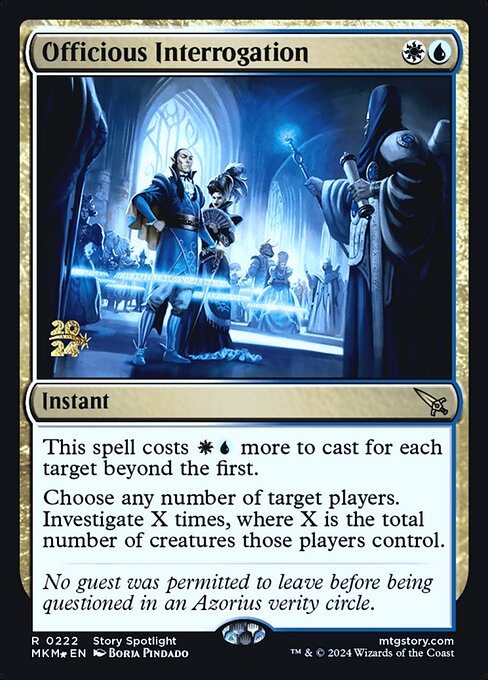

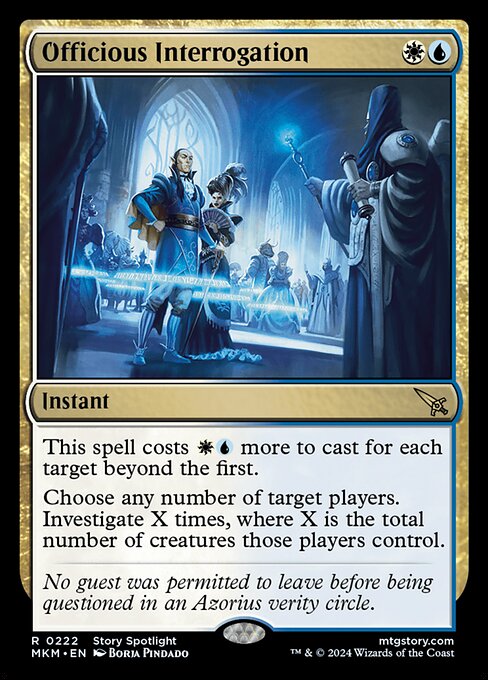
 0
0
 0.19€
0.19€
